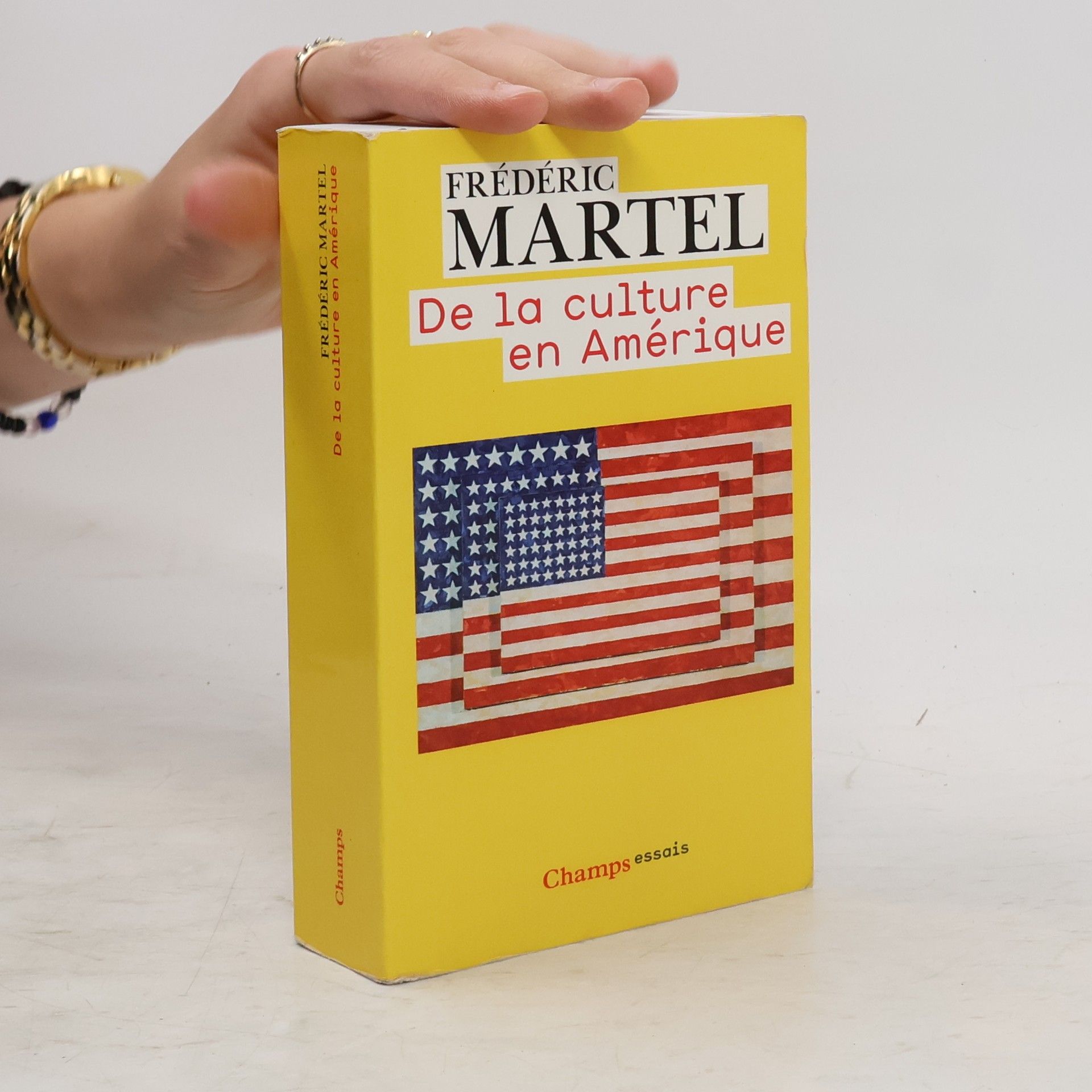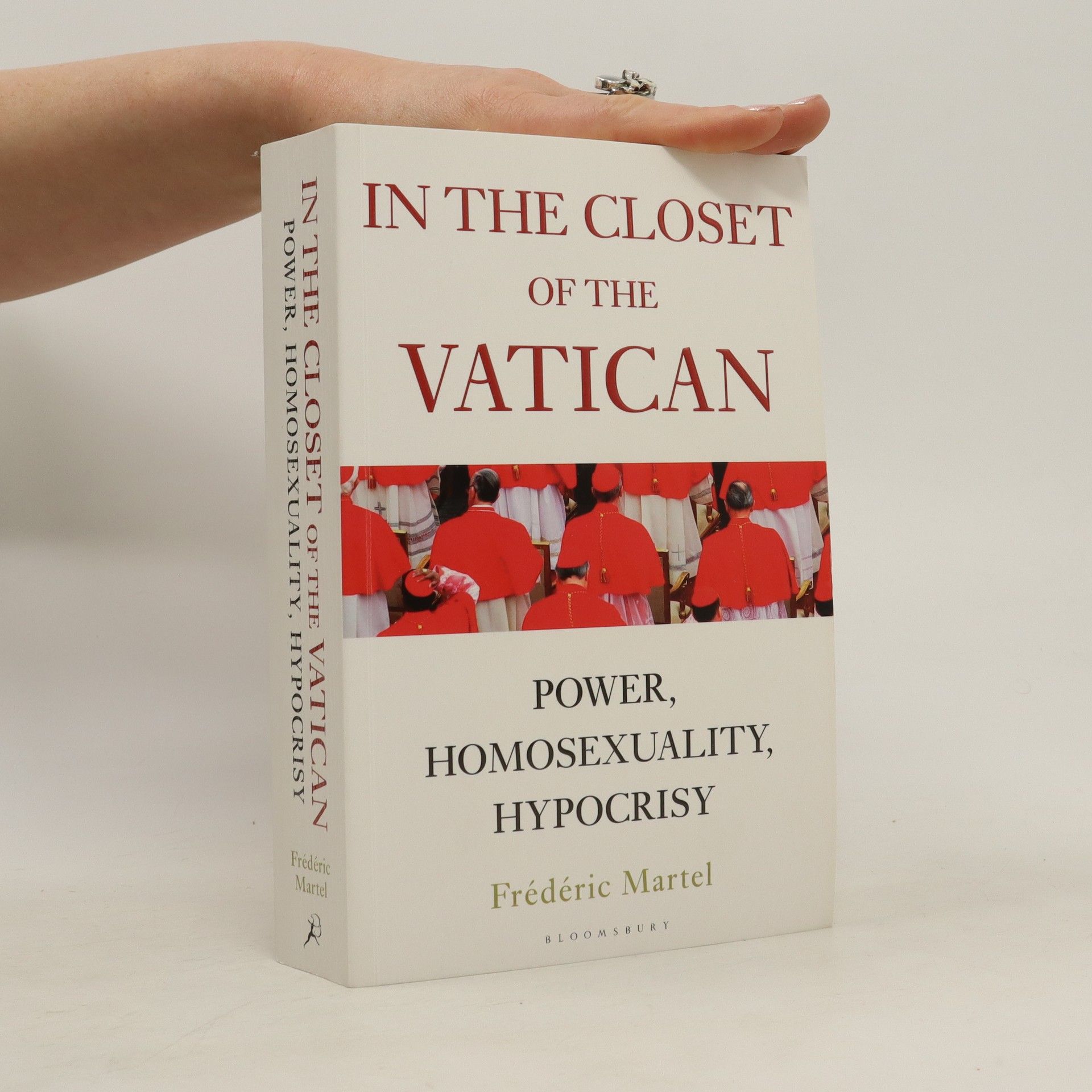Sodoma décrit la face cachée de l'Église : un système construit depuis les plus petits séminaires jusqu'au Vatican à la fois sur la double vie homosexuelle et sur l'homophobie la plus radicale. La schizophrénie de l'Église est insondable : plus un prélat est homophobe en public, plus il est probable qu'il soit homosexuel en privé. Pendant quatre années, Frédéric Martel a vécu en immersion à l'intérieur du Vatican. Cette enquête vertigineuse en révèle le secret.
Frédéric Martel Livres






Comment fabrique-t-on un best-seller, un hit ou un blockbuster ? Pourquoi le pop-corn et le Coca-Cola jouent-ils un rôle majeur dans l’industrie du cinéma ? Après avoir échoué en Chine, Disney et Murdoch réussiront-ils à exporter leur production en Inde ? Comment Bollywood séduit-il les Africains, et les telenovelas brésiliennes les Russes ? Comment Al Jazeera a-t-elle préparé les révolutions arabes ? Pourquoi les Wallons réclament-ils des films doublés alors que les Flamands préfèrent les versions sous-titrées ? Et pourquoi, finalement, ce triomphe du modèle américain de l’« entertainment » et ce déclin de l’Europe ? Au coeur de cette bataille mondiale : la culture « mainstream » (dominante, populaire). De Hollywood à Bollywood, du Japon à l’Afrique subsaharienne, du Mexique à la Corée, cette enquête sans précédent a été menée pendant cinq ans dans trente pays. Dans toutes les capitales de l’entertainment, Frédéric Martel analyse le jeu des acteurs, les logiques des groupes et suit la circulation des contenus sur les cinq continents. De nouveaux pays émergent avec leurs médias et leur « soft power », ils veulent contrôler les images et les rêves. Internet décuple leur puissance. Tout s’accélère. Mainstream raconte cette nouvelle guerre globale de la culture et des médias. Best-seller inattendu, le livre a été traduit dans une dizaine de langues et a suscité des débats dans de nombreux pays – il est lui-même devenu mainstream.
Global Gay
La longue marche des homosexuels
Pourquoi n'y a-t-il pas de ministère de la Culture aux États-Unis Comment peut-on reprocher à la gris aux Américains leur impérialisme culturel et leur absence de culture ? Pour comprendre ces paradoxes, Frédéric Martel a entrepris une grande enquête, sans précédent. À partir des archives inédites et de sept cents entretiens dans trente-cinq États, il reconstitue la politique culturelle américaine, de, John F Kennedy à Barack Obama. Ce faisant, il décrypte aussi le fonctionnement de la philanthropie, des fondations, du mécénat et met au jour le rôle central du gouvernement, la mission artistique des universités et la diversité culturelle américaine. Un système global et complexe apparaît alors, particulièrement efficace et totalement méconnu : si le Ministère de la Culture n'est nulle part, la vie culturelle est partout. Ce tableau, riche en nuances, ébranle nos certitudes; il reflète, en miroir, les contradictions, entre mythes et réalités, de notre propre système culturel. Depuis sa parution, De la culture en Amérique est devenu un ouvrage de référence sur les politiques culturelles en général et sur les États-Unis en particulier. Il a été traduit et discuté dans de nombreux pays.
"Le célibat des prêtres ; l'interdiction du préservatif par l'Eglise ; la culture du secret sur les affaires d'abus sexuels ; la démission du pape Benoît XVI ; la misogynie du clergé ; la fin des vocations sacerdotales ; la fronde contre le pape François : un même secret relie toutes ces questions. Ce secret a longtemps été indicible. Il porte un nom : Sodoma. La ville biblique de Sodome aurait été détruite par Dieu en raison de l'homosexualité de ses habitants. Or, aujourd'hui, c'est au Vatican que l'on trouve l'une des plus grandes communautés homosexuelles au monde. Pendant quatre années, Frédéric Martel a vécu en immersion à l'intérieur du Vatican et mené l'enquête sur le terrain dans une trentaine de pays. Il a interrogé des dizaines de cardinaux et rencontré des centaines d'évêques et de prêtres. Ce livre révèle la face cachée de l'Eglise : un système construit depuis les plus petits séminaires jusqu'au Vatican à la fois sur la double vie homosexuelle et sur l'homophobie la plus radicale. La schizophrénie de l'Eglise est insondable : plus un prélat est homophobe en public, plus il est probable qu'il soit homosexuel en privé. "Derrière la rigidité, il y a toujours quelque chose de caché ; dans de nombreux cas, une double vie." En prononçant ces mots, le pape Français nous a confié un secret que cette enquête vertigineuse révèle pour la première fois."-- Back cover
Exploring the globalization of LGBT rights, Frédéric Martel's work spans over fifty countries, showcasing a diverse range of experiences and activism. Through interviews with individuals from various backgrounds, including a café owner in Jordan and a South African jurist, Martel highlights the struggles and triumphs of the gay community. He reveals the complexities of gay life in places like China and Iran, where social dynamics differ significantly. The narrative underscores the ongoing fight for acceptance and rights, amidst both progress and severe challenges faced by many.
"A startling account of corruption and hypocrisy at the heart of the Vatican. [This book] exposes the rot at the heart of the Vatican and the Roman Catholic Church today. This brilliant piece of investigative writing is based on four years' authoritative research, including extensive interviews with those in power. The celibacy of priests, the condemnation of the use of contraceptives, the cover-up of countless cases of sexual abuse, the resignation of Benedict XVI, misogyny among the clergy, the dramatic fall in Europe of the number of vocations to the priesthood, the plotting against Pope Francis--all these issues are clouded in mystery and secrecy. [This] is a book that reveals these secrets and penetrates this enigma. It derives from a system founded on a clerical culture of secrecy which starts in junior seminaries and continues right up to the Vatican itself. It is based on the double lives of priests and on extreme homophobia. The resulting schizophrenia in the Church is hard to fathom. But the more a prelate is homophobic, the more likely it is that he is himself gay. 'Behind rigidity there is always something hidden, in many cases a double life.' These are the words of Pope Francis himself, and with them the Pope has unlocked the Closet. No one can claim to really understand the Catholic Church today until they have read this book. It reveals a truth that is extraordinary and disturbing."-- Amazon.com
In the Closet of the Vatican
- 576pages
- 21 heures de lecture
A startlingly revealing and detailed account of corruption and hypocrisy at the heart of the Vatican.
Sodom
Macht, Homosexualität und Doppelmoral im Vatikan
Eine fesselnde Reportage aus dem Innersten des Vatikans: Der französische Journalist Frédéric Martel beschreibt, wie katholische Priester, Kardinäle und Bischöfe die rigide, homophobe Sexualmoral verteidigen. Obwohl die meisten von ihnen selbst homosexuell sind. Warum diese Doppelmoral? Warum wird so hartnäckig geschwiegen, warum wird gegen Papst Franziskus intrigiert, den ersten Papst, der homophobe Positionen lockern will? Dahinter steckt ein weltweiter Machtzirkel homosexueller Priester und Würdenträger, die sich selbst als die »Gemeinde« bezeichnen. Sie verhindern jede Liberalisierung, um ihr Doppelleben zu schützen: Ob es um Kondome geht, um die gleichgeschlechtliche Ehe oder die wichtigste Bastion: das Zölibat. Auch das Schweigen über sexuellen Missbrauch ist Teil dieses Systems. Ein Buch, mit dem Martel die Geschichte des Vatikans seit den 1970er Jahren neu schreibt. Er zeigt die Pontifikate von Johannes Paul II., Benedikt XVI. und Franziskus in gänzlich anderem Licht. Grandios geschrieben, hautnah, spannend wie ein Roman über Macht und Intrigen im Vatikan. »Sensationell!« Sunday Times
Wer beherrscht unsere Köpfe und warum? Diese spannende Expedition untersucht die Mächtigen des Kulturbetriebs und die Mechanismen der Massenkultur. Der Report beleuchtet die weltweite Kulturindustrie als ein milliardenschweres Geschäft, das die Kontrolle über Worte, Bilder und Weltanschauungen umfasst. Medienforscher Frédéric Martel reiste fünf Jahre lang und führte 1250 Interviews mit Akteuren der Kreativindustrien in 30 Ländern. Der Leser wird auf eine Reise durch die Hauptstädte des Entertainments mitgenommen, von Hollywood und Bollywood über TV Globo in Brasilien bis zu Medienkonzernen in Mumbai, Shanghai, Seoul, Rio und Dubai. Während Amerika den globalen Markt dominiert, erheben andere Länder den Anspruch, Hollywood herauszufordern. Europäische Filme, Bücher und Musik spielen hingegen eine zunehmend marginalisierte Rolle, da Europa an seiner elitären Position festhält und die Massenkultur verachtet. Dies führt zu einem Verlust im Wettkampf um Werte und Inhalte in den Köpfen der Menschen. Die provokante These lautet: Um ein internationaler Player zu bleiben, muss Europa mehr Mainstream annehmen.



